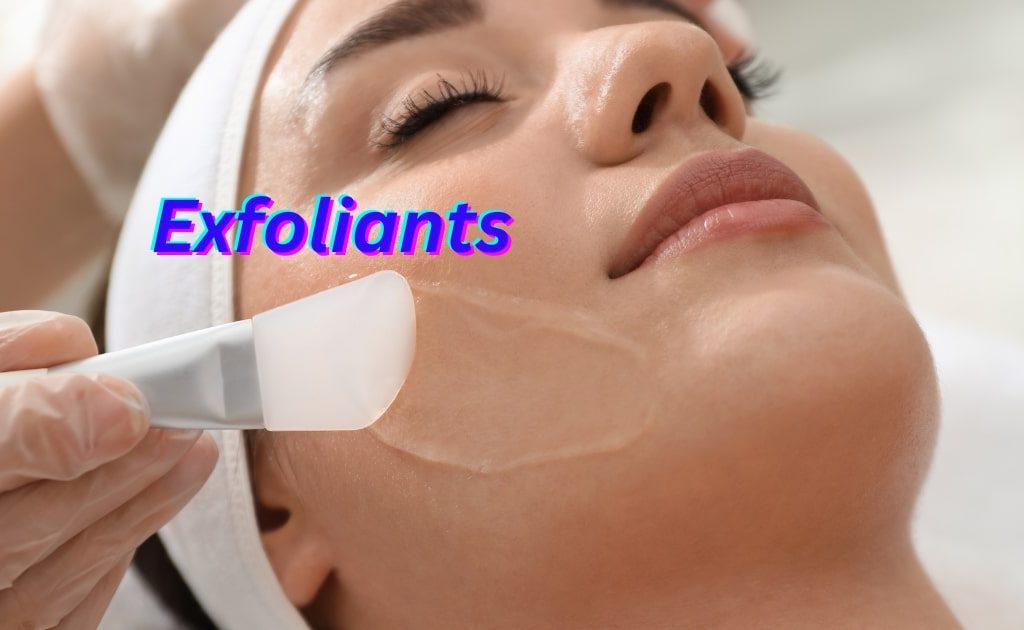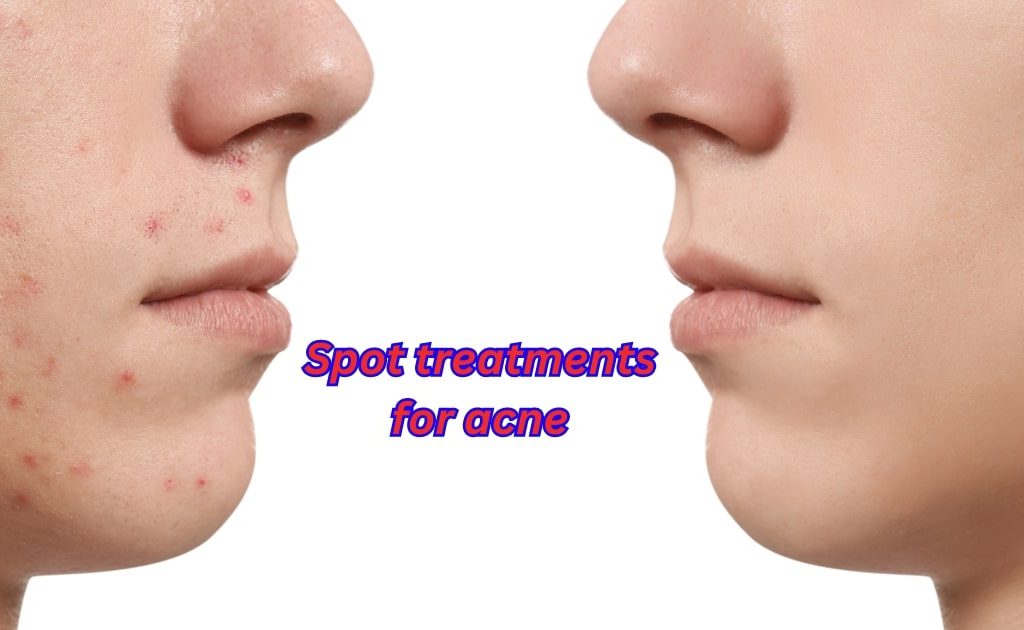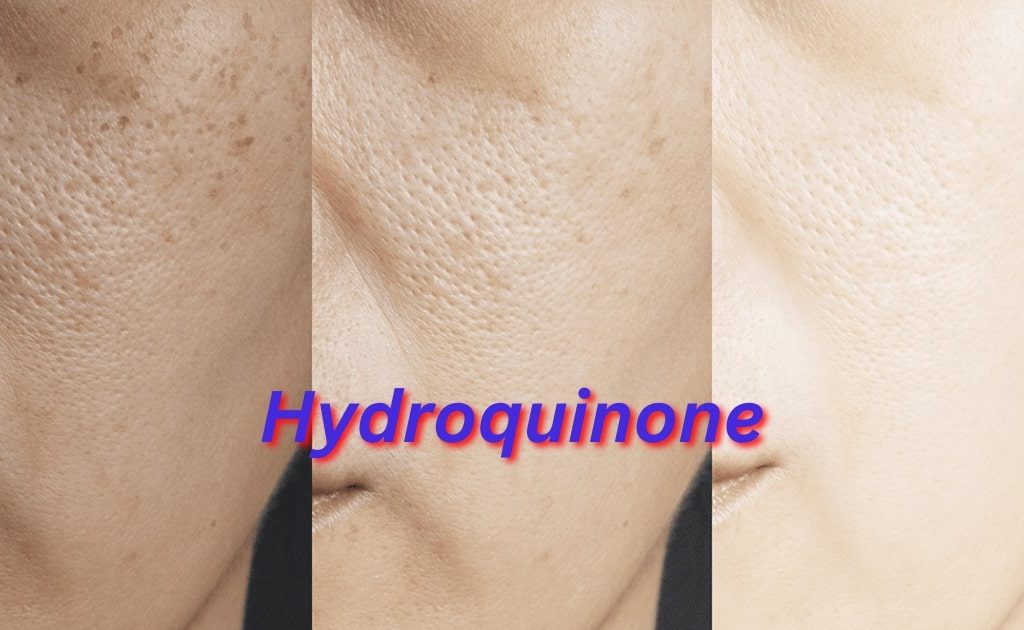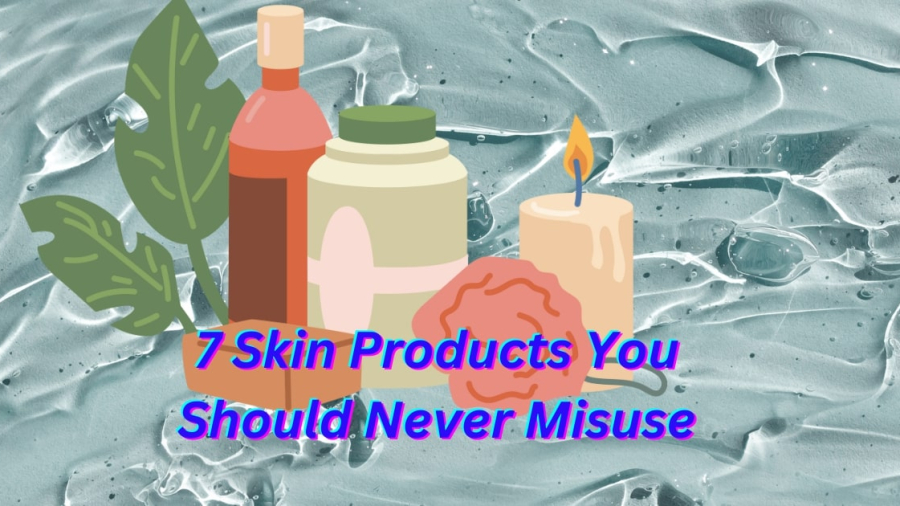Correct use of skin products is crucial for preserving healthy and beautiful skin. The following seven skin care products are never to be misused:
Sunscreen
Sunscreen is a crucial component of any skincare routine because it helps shield the skin from the damaging effects of ultraviolet (UV) radiation from the sun. Sunscreen functions as a shield, reducing the risk of skin cancer, skin damage, premature aging, and sunburn. It is crucial to choose a sunscreen that offers broad-spectrum protection from UVA and UVB radiation. Additionally, using sunscreen with an SPF of 30 or above offers sufficient protection.
It is essential to liberally apply sunscreen to all exposed body parts, especially the face, neck, arms, and legs. Continuous protection is provided throughout the day with regular reapplication every two hours, or more often if perspiring or swimming. You can protect your skin products and keep it healthy and youthful-looking by making sunscreen a daily ritual and part of your skincare regimen.

Exfoliants
Exfoliants are skincare items or procedures that assist in removing dead skin cells and support smoother, younger-looking skin. They function by delicately removing the top layer of dead skin cells to expose a new complexion underneath. Numerous advantages of exfoliation include better skin texture, unclogged pores, and a more radiant look.
Physical and chemical exfoliants are the two basic categories. When applied to the skin and rubbed in, physical exfoliants include grains or particles that physically brush away dead skin cells. Scrubs, brushes, and exfoliating gloves are a few examples. On the other hand, chemical exfoliants break down the connections between dead skin cells in a gentle manner by using chemicals like alpha-hydroxy acids (AHAs), beta-hydroxy acids (BHAs), or enzymes.
It’s crucial to choose the best exfoliant for your skin type and to use it on a regular basis. Excessive exfoliation may result in skin sensitivity, dryness, or irritation. Depending on the intensity of the exfoliant and the tolerance of your skin, it is normally advised to exfoliate 1-3 times each week. It can be preferable to start with a gentler exfoliator and gradually increase use if you have sensitive skin.
Being careful and avoiding excessive pressure are crucial throughout the exfoliation process, particularly when using physical exfoliants. To preserve moisture and restore your skin’s natural balance after exfoliating, moisturize. Because exfoliation might temporarily make skin more sensitive to the sun, sun protection is also essential.
Not all exfoliants are appropriate for all skin types or conditions; this should be noted. A dermatologist or skincare expert should be consulted if you have particular skin products disorders or concerns in order to select the best exfoliation technique for you. You may benefit from smoother, more luminous skin by appropriately incorporating exfoliation into your skincare regimen.
Retinoids
Retinoids are a type of vitamin A-derived skincare compound that has several positive effects on the skin. They are well known for their success in curing acne, smoothing out fine lines and wrinkles, and enhancing skin texture. Retinoids provide smoother, more youthful-looking skin by promoting collagen formation and speeding up cell turnover. Retinoids should, however, only be used as prescribed and with care since they might, particularly when first starting out, lead to skin products sensitivity, dryness, and irritation. Start with modest dosages, gradually increase use, and always use a moisturizer and sunscreen thereafter. A dermatologist can provide you individualized advice on how to include retinoids in your skincare regimen for the best results.

Spot treatments for acne
Acne spot treatments are specific skincare items designed to treat and lessen the appearance of one blemish or pimple at a time. The active compounds they often include, such as benzoyl peroxide, salicylic acid, or sulfur, help to unclog pores, lessen inflammation, and kill germs that cause acne. Applying spot treatments to the whole face might cause dryness and irritation; therefore, it’s crucial to just use them on the problematic region of the skin products.
It is advised to apply spot treatments only on breakouts that are currently active and to adhere to the product’s directions. It’s important to remember that spot treatments are intended to be used as a focused remedy for already-present blemishes rather than as a preventive precaution. The best spot treatment for your skin may be found by including a regular skincare regimen and contacting a dermatologist, who can also help you address any underlying causes of acne.
Cosmetic Peels
Chemical peels are skincare procedures that exfoliate the skin and enhance its look by using chemical solutions. The dead skin cells on the skin’s outermost layers are removed, exposing younger, smoother skin below. Numerous skin issues, such as acne, hyperpigmentation, fine wrinkles, and uneven skin texture, may be helped by chemical peels. However, it’s crucial to proceed with care and seek expert advice while using chemical peels.
Based on your skin type, concerns, and desired results, a trained dermatologist or aesthetician should choose the kind and intensity of chemical peel for you. Skin irritation, burns, or pigmentation problems may result from improper use of chemical peels or from utilizing harsher peels without the right instruction. The pre- and post-peel recommendations, which include skincare preparation, sun protection, and avoiding certain skin products or treatments, must be followed exactly.
In order to get the best outcomes with the least amount of danger, a professional will also make sure the peel is administered appropriately, monitored during the procedure, and given the appropriate aftercare. It is crucial to get the advice of a skincare expert to decide if chemical peels are right for your skin type and to create the best treatment schedule for your individual requirements.

Hydroquinone
Because of its ability to lighten skin, hydroquinone is a frequent component in skin products. It is mostly used to treat hyperpigmentation, which includes melasma, dark patches, and post-inflammatory hyperpigmentation. The mechanism of action of hydroquinone is to prevent the synthesis of melanin, the pigment that gives skin its color.
Hydroquinone should, however, only be used under the supervision of a healthcare provider and with caution. Hydroquinone side effects include skin irritability, redness, and possibly rebound pigmentation when it is misused. It is encouraged to take hydroquinone as prescribed by your healthcare practitioner and for a brief period of time.
It is advised to do a patch test on a small area of skin to check for any allergic reactions or sensitivities before introducing hydroquinone into your skincare regimen. In addition, hydroquinone may make the skin more vulnerable to UV rays, so it’s important to practice sun safety precautions like wearing sunscreen.
Hydroquinone shouldn’t be applied to unaffected skin regions or used in excess. A dermatologist, for example, may provide specialized counsel and direction based on your unique requirements if you have any questions about taking hydroquinone or if you encounter any negative side effects.
Rogaine Creams
Topical corticosteroids, usually referred to as steroid creams, are frequently recommended to treat a variety of inflammatory skin disorders, including eczema, psoriasis, and dermatitis. These lotions include artificial corticosteroids, which help to lessen the inflammation, itching, and redness brought on by these disorders.
However, it’s crucial to use steroid creams sensibly and in accordance with a healthcare professional’s recommendations. The skin might suffer if steroid creams are misused or overused. Use of these lotions over an extended period of time might result in stretch marks, skin thinning, and increased susceptibility to infections.
Only the skin regions and for the necessary time periods advised by the healthcare expert should get applications for steroid creams. Due to the increased danger of adverse effects in this delicate region, it is crucial to avoid applying them to the face unless expressly recommended by a healthcare professional.
It is vital to follow up with routine check-ups with your doctor after receiving a prescription for steroid cream. They can keep track of your progress, modify your treatment plan as needed, and provide you advice on how to use the cream safely and effectively.
Consult with your doctor right away if you have any questions or encounter any unanticipated side effects while taking steroid creams. They can evaluate your situation and choose the best course of action to manage your skin condition optimally while reducing the danger of side effects from steroid creams. To make sure you’re using skin products appropriately and safely, keep in mind that it’s essential to read product labels, adhere to directions, and seek expert advice when necessary.

